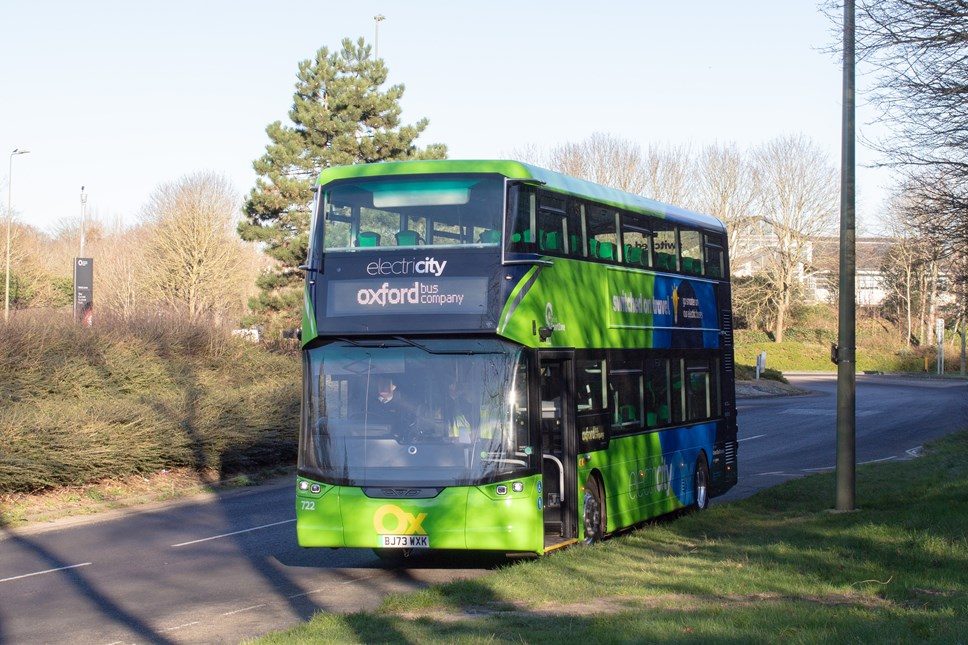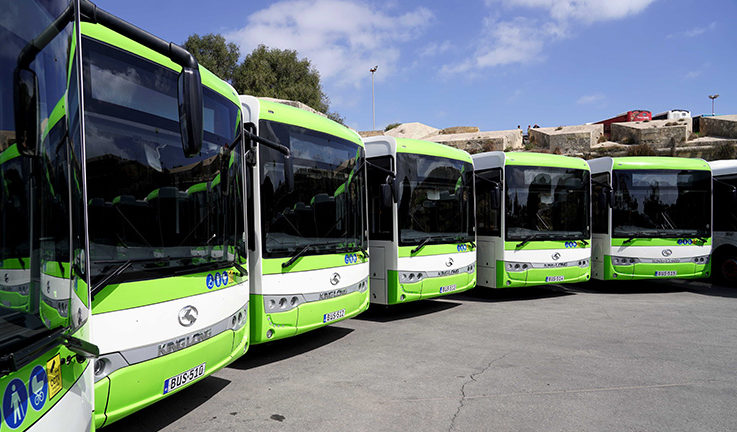
Photo: Go Ahead
Oxford launches all-electric bus fleet
23 January 2024
by Christopher Carey
Oxfordshire County Council has launched what it says is one of the biggest UK fleets of electric buses outside London.
Working in partnership with the Go-Ahead Group and Stagecoach, the £82.5 million (US$104.8 million) project will deliver 159 new battery buses to Oxford’s roads – the first of which have already gone into service.
“I’m proud and thrilled that the county council is backing its ambitions with political and financial capital, alongside our partners, to deliver a safer, cleaner, greener, better county for residents and visitors,” said Councillor Andrew Gant, Oxfordshire County Council’s Cabinet Member for Transport Management.
“Together with policies such as traffic filters to hugely increase bus efficiency, we are delivering on our vision of a better future. This is an exciting and important moment for us all.”
Over half the funding for the scheme has come from Go-Ahead and Stagecoach, with the rest from public funds.
The project is also funding two electric charging hubs at the city’s bus depots.
Matt Carney, CEO of The Go-Ahead Group’s bus division, said: “Electric buses make an enormous difference to air quality in cities and by decarbonising our fleet in towns and cities across the country, we aim to make a positive contribution to the fight against climate change.
“These new buses in Oxford will form Go-Ahead’s biggest fleet of zero emission buses outside London.”
Journey times
The county council has committed to help reduce bus journey times by at least 10 percent in the city to ensure the investment is viable for bus operators.
Oxford has already introduced a number of bus gates in a bid to cut trip durations. A bus gate is a short section of street which only buses and other authorised vehicles can pass through.
This is in addition to the expansion of traffic filters and Low Traffic Neighbourhoods (LTNs) – which restrict where private vehicles can go – to encourage people towards public transport or active travel where possible.
Last July, bus companies operating in the city complained that the LTNs had “directly caused bus services across the bulk of Oxford to become substantially slower, even less reliable, and as a result have further substantially reduced bus patronage and mileage, seriously aggravating the challenges caused by the Covid crisis”.
Despite these concerns, the council approved three new LTNs in October 2023.
There are 2,776 electric buses in service in the UK, according to zero-emissions transport body Zemo, with more than 1,400 in London and nearly 500 in Scotland.
Earlier this month Go-Ahead was forced to temporarily withdraw a small fleet of electric buses in south London after one caught fire.
Transport for London said the move was a precaution affecting only one model on a specific route.
Image: Go-Ahead










